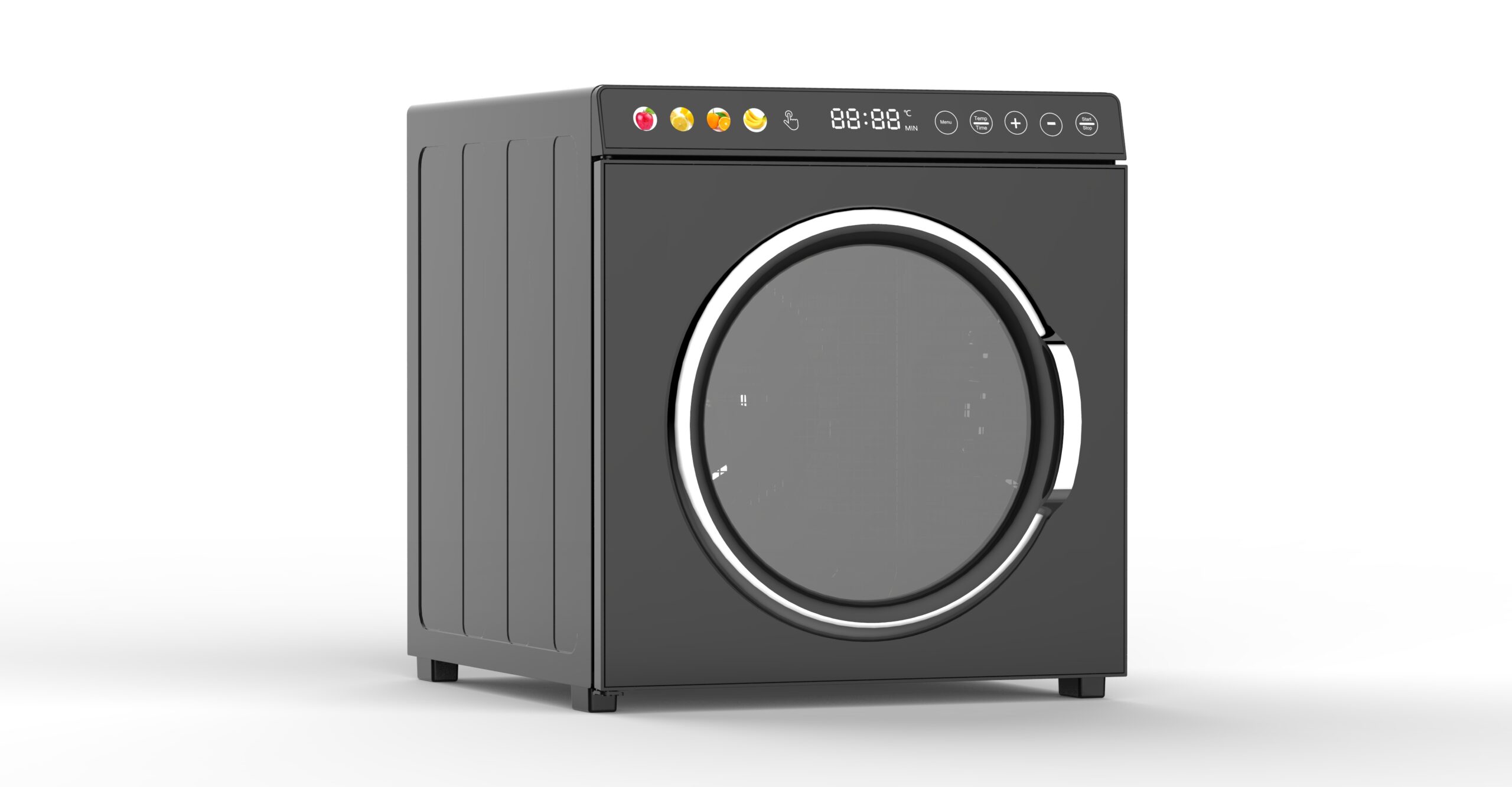As the Sales Manager at Foshan Linden Intelligent Appliances Co., Ltd., I’ve seen how our food dehydrators transform kitchens worldwide. Our appliances, crafted in China with three production lines, are designed for quality and versatility. One of my favorite ways to use our food dehydrators is to make dried fruit powder. This vibrant, nutrient-packed ingredient adds flavor to smoothies, baked goods, and more. Today, I’m sharing my step-by-step guide to creating homemade dried fruit powder using our food dehydrators. Whether you’re a health enthusiast or a culinary innovator, this process is simple, fun, and rewarding.
Why Make Your Own Dried Fruit Powder?
Dried fruit powder is a game-changer. It’s a natural way to boost flavor and nutrition. Unlike store-bought powders, homemade versions are free from additives. According to Healthline, dried fruits retain most vitamins and antioxidants. Our food dehydrators make the process easy, producing consistent results every time.
Benefits of Homemade Fruit Powder
Homemade fruit powder is versatile. I use it in smoothies, yogurt, or even as a natural food coloring. It’s cost-effective and lets you control quality. Plus, our dehydrators’ customizable settings ensure perfect drying for any fruit.
Why Use a Food Dehydrator?
A food dehydrator is ideal for this task. It dries fruit evenly at low temperatures, preserving nutrients. Our models, exported to North America, Europe, Russia, and the Middle East, offer precise temperature control. This ensures your fruit powder is vibrant and flavorful.
Choosing the Right Food Dehydrator
Not all dehydrators are equal. I recommend our Foshan Linden food dehydrators for their reliability and design. They come with adjustable trays and temperature settings, perfect for fruit powder projects.
H3: Key Features to Look For
Look for adjustable temperature controls. Most fruits dry best between 125°F and 135°F, per USDA guidelines. Our dehydrators also have spacious trays, allowing you to process large batches. Sleek or traditional designs fit any kitchen aesthetic.
H3: Capacity Considerations
Choose a dehydrator based on your needs. For small batches, a compact model works. For bulk drying, our larger units handle multiple trays. This is great for making several fruit powders at once.
Step-by-Step Guide to Making Dried Fruit Powder
Here’s my tried-and-true process for creating homemade dried fruit powder. Follow these steps for professional results.
H2: Step 1: Select Your Fruits
Choose fresh, ripe fruits for the best flavor. I love using strawberries, mangoes, and apples. Avoid overripe or bruised fruits, as they can affect texture. Organic fruits are ideal for clean, pure powder, as noted by WebMD.
H3: Best Fruits for Powder
- Strawberries: Sweet and vibrant, great for smoothies.
- Mangoes: Tropical and rich, perfect for desserts.
- Apples: Mild and versatile, ideal for baking.
- Bananas: Creamy and sweet, excellent for snacks.
H2: Step 2: Prepare the Fruits
Proper prep ensures even drying. I wash fruits thoroughly to remove dirt or pesticides. Peel fruits like mangoes or apples if you prefer a smoother powder. Remove pits, seeds, or cores.
H3: Slicing Tips
Slice fruits thinly, about 1/8 inch thick. Uniform slices dry evenly. I use a mandoline slicer for precision, available at Amazon. For juicy fruits like pineapple, pat dry with a paper towel to reduce drying time.
H2: Step 3: Arrange on Dehydrator Trays
Place fruit slices on dehydrator trays in a single layer. Avoid overlapping to ensure proper airflow. I use parchment paper or silicone mats for sticky fruits like bananas. Find mats at Walmart.
H3: Spacing Matters
Leave small gaps between slices. This allows hot air to circulate, speeding up drying. Our dehydrators’ fan systems ensure consistent results across all trays.
H2: Step 4: Set the Temperature and Time
Set your dehydrator to 125°F–135°F for most fruits. Drying times vary: strawberries take 6–8 hours, while apples may need 8–10 hours. Check periodically to avoid over-drying.
H3: My Timing Hack
Start checking at the lower end of the time range. Fruits should be brittle, not chewy. If they snap when bent, they’re ready.
H2: Step 5: Grind into Powder
Once dried, let fruits cool completely. I use a high-powered blender or spice grinder to process them into powder. Pulse until fine, but don’t overheat the machine. Find grinders at Target.
H3: Achieving Fine Powder
Sift the powder through a fine mesh strainer for smoothness. Store in airtight containers to maintain freshness. Glass jars work best, available at Bed Bath & Beyond.
H2: Step 6: Store Properly
Store your fruit powder in a cool, dry place. I use mason jars with tight lids to prevent moisture absorption. According to FDA guidelines, properly stored dried powders last up to a year.
H3: Storage Tip
Add a silica gel packet to absorb moisture. Label jars with the fruit type and date for easy tracking.
Creative Uses for Dried Fruit Powder
Dried fruit powder is incredibly versatile. Here are my favorite ways to use it in the kitchen.
H2: Smoothies and Beverages
Add a teaspoon of strawberry powder to smoothies for a flavor boost. It’s nutrient-dense and dissolves easily. I mix mango powder into iced tea for a tropical twist.
H3: Recipe Idea
Blend 1 tsp of banana powder with almond milk, spinach, and protein powder for a creamy smoothie. It’s a quick breakfast or post-workout snack.
H2: Baking and Desserts
Fruit powder enhances baked goods. I sprinkle apple powder into muffin batter for extra flavor. It’s also great for frosting or dusting cakes.
H3: My Go-To Trick
Mix mango powder into whipped cream for a vibrant dessert topping. Bake at 350°F in our air fryer ovens for complementary treats.
H2: Savory Dishes
Fruit powders add depth to savory recipes. I use lemon powder in marinades for chicken. It’s a natural flavor enhancer without added sugar.
H3: Flavor Boost
Sprinkle blueberry powder over roasted veggies. It adds a subtle sweetness that pairs well with savory spices.
Tips for Perfect Dried Fruit Powder
I’ve learned a few tricks to ensure top-notch results. Here’s what works.
H3: Choose High-Quality Fruits
Fresh, ripe fruits yield the best powder. I avoid fruits with blemishes to ensure pure flavor. Local farmers’ markets are great sources.
H3: Monitor Drying Progress
Check trays every few hours. Rotate them if your dehydrator doesn’t have a fan. This ensures even drying across all slices.
H3: Blend in Small Batches
Grind small amounts to avoid clogging your blender. I process 1 cup of dried fruit at a time for a fine, consistent powder.
Common Mistakes to Avoid
Even experts make errors. Here’s what I steer clear of.
H3: Over-Drying Fruits
Over-drying makes fruits hard to grind. I check for brittleness early to avoid this. Fruits should snap, not bend.
H3: Skipping Cleaning
Clean your dehydrator trays after each use. Sticky fruit residue can affect future batches. I use warm, soapy water for easy cleanup.
H3: Improper Storage
Moisture ruins fruit powder. I never store powder in humid areas. Use airtight containers to keep it fresh, per Consumer Reports.
Why Choose Foshan Linden Food Dehydrators?
At Foshan Linden, our food dehydrators are built for performance. With three production lines in China, we ensure top-quality craftsmanship. Our appliances meet global standards, serving markets in North America, Europe, and beyond. Customizable settings and stylish designs make them a kitchen must-have.
H3: Designed for Precision
Our dehydrators offer precise temperature control. This ensures perfect drying for fruit powders. Adjustable trays maximize space for large batches.
H3: Global Reach
We showcase our products at trade shows and on our website. Our OEM and ODM services cater to brands seeking quality and innovation.
Conclusion
Making dried fruit powder at home is simple with a food dehydrator. It’s a healthy, versatile ingredient that elevates your cooking. At Foshan Linden, our dehydrators make the process effortless, delivering vibrant results. Follow my guide, experiment with fruits, and explore our range at lindensmart.com. Start creating your own fruit powders today!





